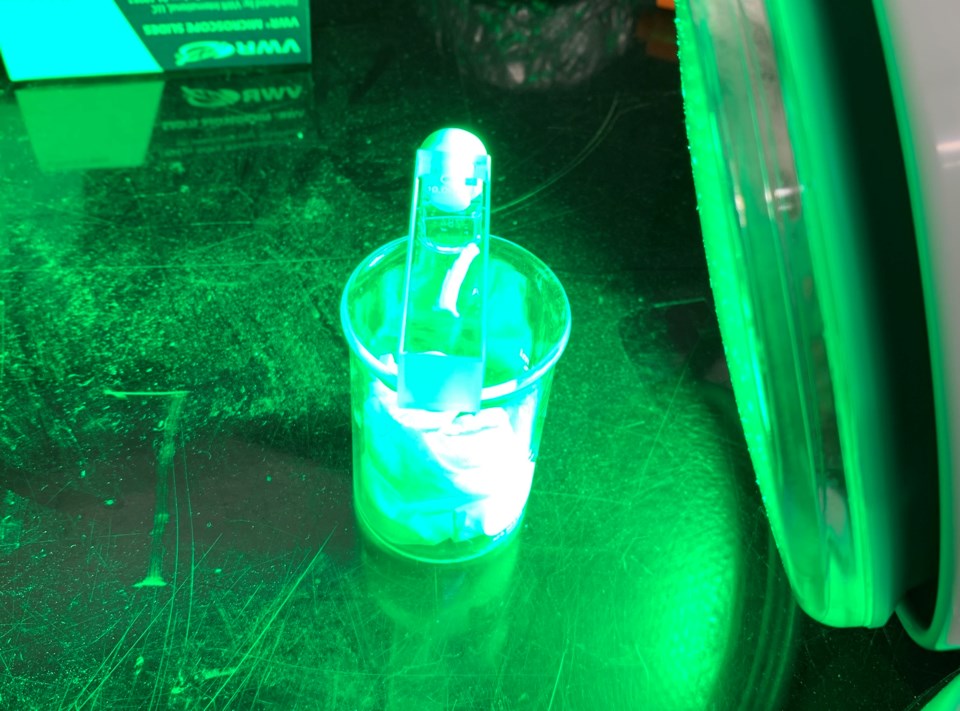In the future people may spray clothing to fight pandemics.
That's thanks to research at the University of British Columbia into a coating that kills bacteria and lowers the infectiveness of viruses, including SARS-CoV-2, the virus causing COVID-19.
"This coating has both passive and active antimicrobial properties, killing microbes immediately upon contact, which is then amped up when sunlight hits the cloth,” says Dr. Michael Wolf, a professor of chemistry, in a press release.
The coating, a which starts off as a liquid solution, has a variety of properties that helps it thwart microbes. It includes a bacteria-killing polymer that, when sunlight hits it, releases a form of oxygen that works to sterilize the surface.
A UV light is then used to solidify the solution into a solid. This means that fabrics like cotton, polyester, denim and silk can be soaked in it and then hit with UV light to complete the process.
It has the added benefit of making the fabric hydrophobic, so water won't soak in the same way as with untreated fabric.
There are other coatings that have a similar result, but the UBC researchers have developed a coating that's much simpler to use and less wasteful.
"All we need is a beaker and a light bulb. I’m fairly certain I could do the whole process on a stove,” says lead author Taylor Wright, a UBC chemistry doctoral student.
The research team has tested coated material against some notable microbes, including the bacteria Escherichia Coli (better known as E. Coli) and Methicillin-resistant Staphylococcus aureus (better known as MRSA and the superbug that causes staph infections).
After using a green light for 30 minutes to activate the sterilizing oxygen only 3 per cent of the E. Coli remained and 35 per cent of the MRSA. After four hours all bacteria was gone. Researchers note that actual sunlight might not get the exact same results.
"Particularly in the Pacific Northwest, it’s not always a sunny day," says Wright. "So, at all times you’re going to have that layer of passive protection and when you need that extra layer of protection, you can step into a lit room, or place the fabric in a room with a green light bulb – which can be found for about $35 online."
With the COVID virus the passive nature of the fabric didn't help much but when exposed to green light for two hours the infectivity of the virus dropped by 90 per cent.
"Biomanufacturing face masks based on this new UBC technology would represent an important addition to our arsenal in the fight against COVID-19, in particular for highly transmissible SARS-CoV-2 variants of concern such as Omicron”, says UBC virology professor Dr. François Jean. The coating could similarly be used for scrubs and clothing worn by healthcare staff.
The use of the coating could go beyond diseases, too, as it could be used in activewear to kill bacteria that cause sweat to stink. UBC notes in the press release a patent is already being sought in the US as fabric and activewear companies are interested in exploring its use.

